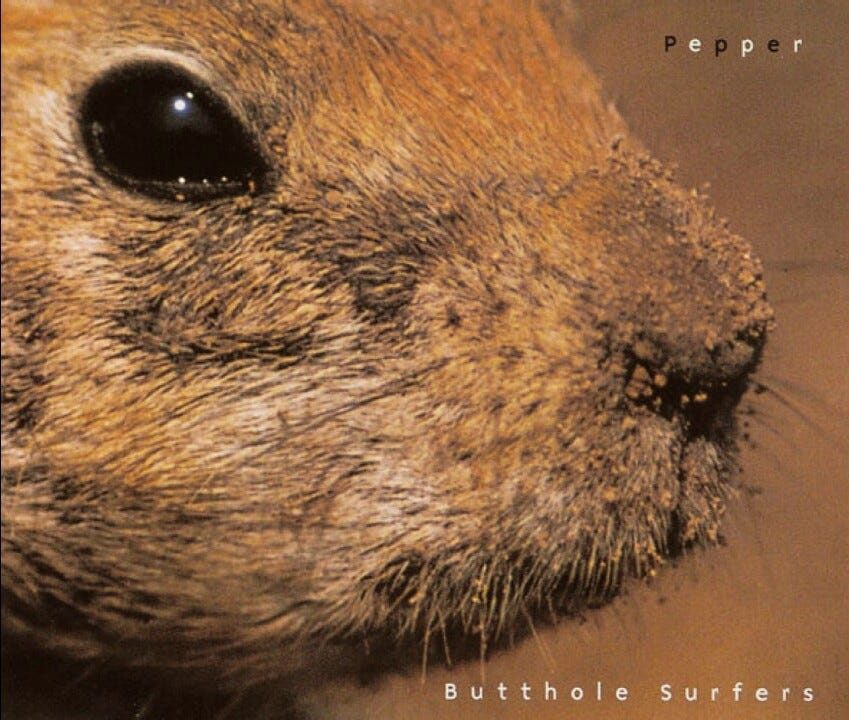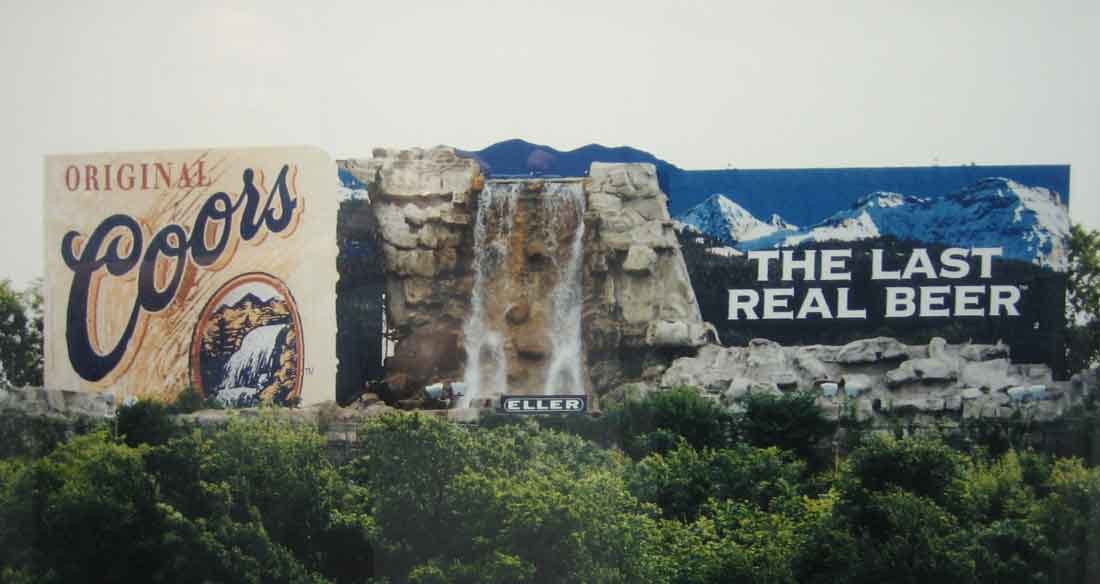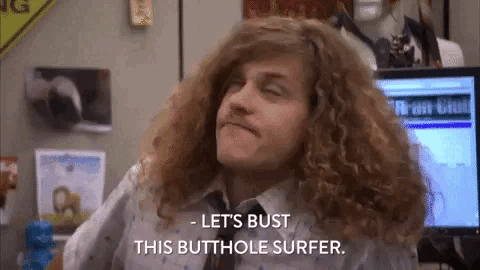Pepper
They were all in love with dyin', they were doin' it in Texas
I mentioned in my previous post that I dig me some one-hit wonders.
Another type of song I like is The Curious Hit That Bears No Resemblance to the Artist’s Body of Work. Examples include ‘Song 2’ by Blur, and ‘How Soon is Now?’ by The Smiths.
Then there’s ‘Pepper’ by the Butthole Surfers.
For those unfamiliar with the Butthole Surfers: I know, I know. When I first heard the name in 1989, I wasn’t sure what to make of it either. Should I be worried? Should I stock up on ointment?
Listening to the band provided no answers.
The music was bizarre: a chaotic blend of mutant punk, hybrid noise, and esoteric psychedelia, all of which was punctuated by lyrics soaked in acid.
“Sometimes it’s hard for me to even think of our music as music. I’ve been playing guitar since ’63, but I’ve never been a good musician. We aren’t good musicians. It has been more of a platform to express ourselves, even though we don’t know what we are trying to express. I was pretty mad at the world for a while.” – Paul Leary
To me they sounded like they were from a different planet. I learned soon after that they hailed from Texas, which I suppose is close enough.
The Butthole Surfers formed in San Antonio in 1981. A variety of members have come and gone since then, though Gibby Haynes (singer), Paul Leary (guitarist), and King Coffey (drummer) have played together since 1983. Other notable bandmates include bassist Jeff Pinkus, as well as second drummer Teresa Nervosa, who most Gen Xers will remember from Slacker. She’s the woman who was trying to sell a pap smear from Madonna.
The band was known for their demented shows, which were art-rock performances turned unholy carnivals, with fires and fistfights and sex onstage, strobe lights that threatened to induce a seizure, and enough dry ice to choke out a stadium. Topping the wild and woolly ride off were graphic medical surgery videos projected ad nauseum behind the band.
Mark Kramer, founder of Shimmy-Disc and producer of artists like Low and Galaxie 500, had this to say regarding his stint as a touring member in the 1980’s:
“Use your imagination to dream up a horrible road story about a barely human troupe of tripping Texas lunatics limping across a defenseless pre-EU Europe, never more than an inch away from incarceration—then multiply it by about 10,000. You will still not even be close to approaching a shadowy semblance of what it was like to sleep beside these four drug-crazed, gin-soaked psychopaths for six full months.”
Let’s jump ahead to 1992.
Nirvana’s Nevermind is a juggernaut. Record weasels scramble to sign any band who ‘sounds like Seattle’; any artist who’s deemed ‘alternative’; any group who can tune their instruments and help the suits ride (or is that surf?) the sweet and grungy wave of profit. Caught in the frenzy are the Butthole Surfers, who shock their fans and critics alike by signing to Capitol Records.
"I grew up listening to The Beatles and Grand Funk Railroad and Dean Martin, and the thought of being on the same record label that they were on was too fucking weird, really weird. A lot of people gave us grief for doing that, but fuck: I wasn't going to turn that down." – Paul Leary
The result was ‘Independent Worm Saloon’, which was produced by none other than Led Zeppelin bassist John Paul Jones. The album gained the Butthole Surfers a foothold into popular culture. Their music appeared on Beavis and Butthead, as well as in John Carpenter’s Escape From LA. Singer Gibby Haynes even joined a celebrity side project called ‘P’ with actor Johnny Depp. They were playing at The Viper Room with Flea on bass the night River Phoenix collapsed outside the club.
The Butthole Surfers had defied the odds by infiltrating the mainstream. Then they proceeded to defy all logic by entering the charts with ‘Pepper’.
Pepper is the third song on the band’s seventh album, ‘Electriclarryland’. It shot all the way to #1 on Billboard’s Modern Rock Tracks, and was the top-ranked song on said chart for 1996. The massive success was unexpected, as was the album being certified gold later on that year.
“I remember the band being summoned to Gary Gersh’s office to celebrate our album going gold. There were a lot of people milling about in there and I thought it was stupid. Then Gary comes up to me and says, ‘Hi, I’m Gary Gersh. I just want you to know that I really respect what you do.’ That made me feel pretty good, coming from the president of Capitol. About five minutes later, he comes up to me again and says, ‘Hi, I’m Gary Gersh. I just want you to know that I really respect what you do.’ That kind of summed things up for me.” – Paul Leary
Pictured above is one of the incarnations of the famous waterfall billboard that’s been a fixture on I-35 since 1962. It holds a special place in many a Texan’s heart, and inspired the following lyrics:
Some will fall in love with life and drink it from a fountain / That is pouring like an avalanche comin’ down the mountain
All of Pepper is an ode to Texas, or at least the types of destructive behavior its rebellious youth indulge in: drugs and racism, knife fights and gun play, rape and amputation and promiscuous sex – ten characters, all told, who either die ignominiously or rub shoulders with the Reaper.
Pepper is a hypnotic track, thanks in large part to its looping beat and droning guitars. You feel as if you’re the one who’s shot your veins with heroin; like it’s you who’s on the nod and flirting with disaster.
The song was a hit, though the Butthole Surfers were unable to enjoy it. First there was the outcry from older fans, who’d supported the band since their sketchy beginnings. They accused the Butthole Surfers of selling out when they signed to a major label, when they cracked the top 40, when they even deigned to perform on Letterman, as square and as subdued as a shoegaze band.
But it wasn’t just their fans who turned on the band. Their label did as well. At least that’s what the Surfers accused Capitol of doing after failing to support them during a disastrous tour of Europe. The band soon learned that inflated budgets for travel, music videos, and everything else that came with a hit, had left them in considerable debt.
They spent the next two years attempting to work off that debt by recording ‘After the Astronaut’. The album was modelled around Pepper’s success, replete with familiar hip hop drum loops and layers of sustained guitars. Capitol decided to scrap the record, even though it had already been mastered and copies had been sent to the press. The band and label soon parted ways.
The Butthole Surfers released one more album after signing a deal with Disney (that is not a misprint). Weird Revolution dropped in ’01 and was uniformly panned, with critics and fans lamenting that the only revolutionary thing about it was its sheer banality.
Nearly three decades have passed since Pepper graced the airwaves. Its success was a fluke, an anomalous blip. As for the haters, who begrudged the band the modest amount of money they made after wallowing in hunger and obscurity for years, Paul Leary put it best in the highly recommended Our Band Could Be Your Life:
“If ever I got any grief from those people, I would just tell them to kiss my ass. You go live in a fuckin’ van, you asshole. You go home to your nice mommy-and-daddy little bed there and think about what a sellout I am.”









I loved the Buttholes when I was a teenager growing up in Austin, and they're still friends of friends, but Pioughd seemed like the start of their flailing around for commercially success after the humor and experimentation of the Touch and Go Records era. And they were already a legendary band by underground punk standards, playing relatively large venues like the Austin Opera House.
"Selling out" is a fraught concept, but it's not clear to me how it benefitted these guys. I read a very sad interview with drummer Rey Washam about his experiences with Gibby Haynes, Al Jourgensen, and heroin. Along with their earlier unceremonious dumping of Touch and Go, it left me pretty disillusioned.
"It's a Madonna pap smear."